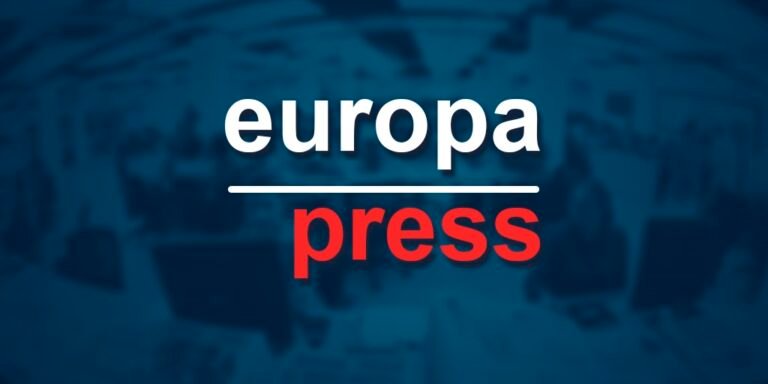
The Vice President and Minister of Family and Equal Opportunities has closed today in Zamora a 2024-2025 course with more professional women sponsoring future female scientists and aiming to implement the ‘FP Steam’ program to address the gender gap in professional training degrees such as electricity, civil engineering, robotics, or industrial chemistry.
May 24, 2025
Castilla y León |
Ministry of Family and Equal Opportunities
The technological and digital change directly affects all areas: the economy, companies, public services, and society in general. However, this complex transformation process cannot leave out half of the population, namely, women. The so-called ‘Stem’ professions and careers—science, technology, engineering, and mathematics—are predominantly male-dominated—21.6% of students in technological high school are women, accounting for 54% of the total student body, figures drop to 15% in fields like Computer Engineering, according to the Ministry of Education. In the case of Vocational Training, female students enrolled in STEM degrees in Castilla y León do not exceed 12%. At the university level, female students choosing a STEM degree do not surpass 25%, falling below 15% in the case of Computer Engineering.
To reverse this situation, the Ministry of Family and Equal Opportunities, together with the Asti Foundation, launched the ‘Stem Talent Girl’ program, aimed at breaking gender stereotypes in these fields and preventing the underutilization of female talent. Through stimulation via training, workshops, guidance, mentorship, or scholarships, the goal is to awaken the scientific-technological vocation of female students pursuing secondary studies.
The Vice President of the Castilla y León Government and Minister of Family and Equal Opportunities, Isabel Blanco, has closed today in Zamora the edition held during the 2024-2025 academic year, which concluded with 1,120 female students, a 14% increase from the previous year, when 983 participated, in 196 educational centers, 10 more than the previous year. In the province of Zamora, 66 girls have been involved in the three program lines: ‘Science for Her’—to identify talent in third and fourth-grade ESO female students—, ‘Mentor Women’—support and guidance from a mentor to young women pursuing a ‘Stem’ career in high school or university—, and ‘Real Work’—scholarships and internships in technology-based companies for university students in their final years.
During this edition, a total of 489 mentors have been part of the program, 60 more than the previous year, a key figure for the development of this initiative, as they are distinguished professionals from different scientific and technological sectors who accompany, support, and inspire young women studying a ‘Stem’ discipline. Additionally, 70 collaborating companies and institutions committed to both innovation and equality have participated. Moreover, 124 informational sessions have been held throughout the community, with 3,455 participants.
However, we must continue to progress along the path of commitment made by President Mañueco, as while this is an increasingly significant area in society, there is still a significant gender gap, emphasized Isabel Blanco, who added that the Government will continue to promote, in a creative and inspiring way, the development of talent and scientific-technological vocations of future generations of women in the community.
Since its inception seven years ago, over 6,000 female students have been trained through its ten centers in all provinces of Castilla y León and Madrid, as well as through online collaboration with the Isabel I University, to facilitate access for young women living in rural areas.
Given the success of ‘Stem Talent Girl’ and to encourage these vocations earlier, ‘Steam Talent Kids’ was launched in the 2021-2022 academic year, incorporating art into its catalog and targeting children in kindergarten and primary school, with priority given to those residing in small municipalities. In a fun way, through robotic kits and educational materials, girls and boys work in class, alongside their teacher, on configuring a robot, and subsequently participate in a competition between schools.
This year, 1,515 students have participated, 101 more than the previous year, guided by 87 teachers in 38 schools throughout Castilla y León. In Zamora, 53 students have been involved in two schools with the assistance of four teachers.
Direct Bet on ‘Stem’ Employment
To go a step further, President Mañueco announced last March the creation of the ‘FP Steam’ initiative, with the specific purpose of increasing the presence of women in professional training degrees related to science and technology. The President himself stated that only one out of every ten professional training positions in Stem areas is occupied by women, representing a significant gender gap affecting the job market. This evident inequality not only limits female professional opportunities but also negatively impacts the competitiveness of strategic and emerging sectors. Therefore, he added, it is necessary to stimulate the technological talent of women, often hidden, so they can develop their scientific and technological vocations.
The program will include mentorship and support networks for female students, a FP Stem Ambassadors Network, a space for collaboration with companies, and its own quality seal for educational institutions. Additionally, examples of female role models will be presented to female students as sources of inspiration. In this way, it is intended that young women opt for highly male-dominated areas such as mechanical manufacturing, electricity and electronics, energy, construction and civil engineering, robotics, or industrial chemistry.

